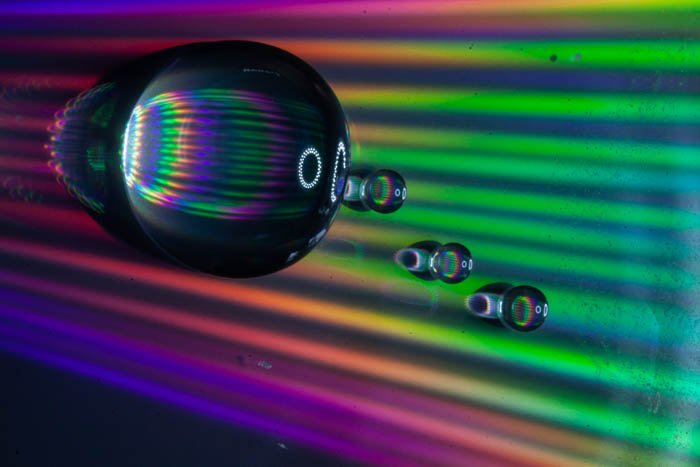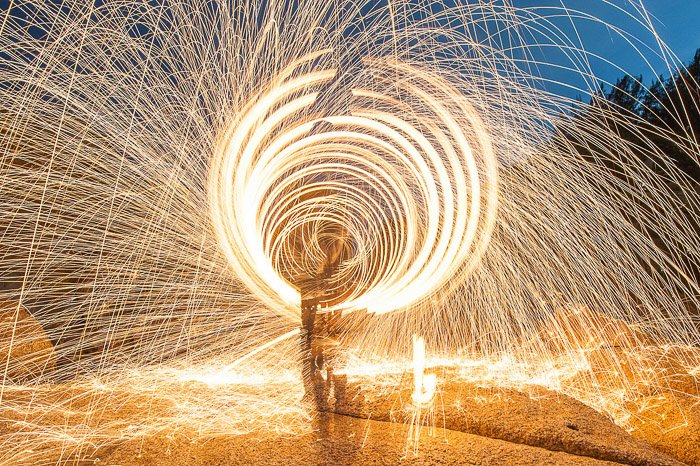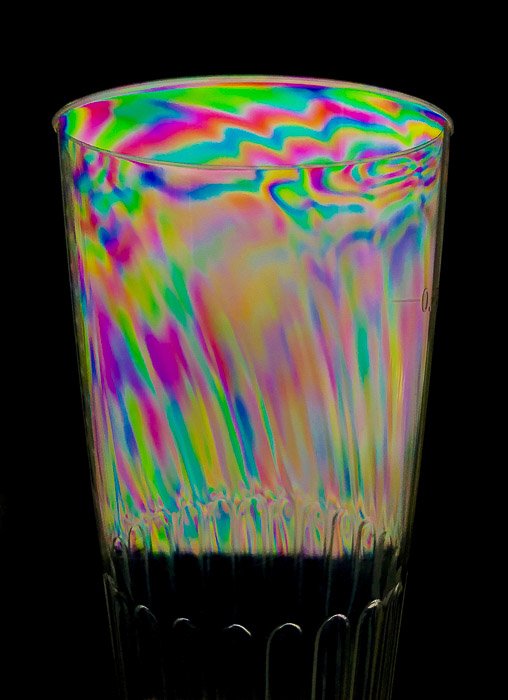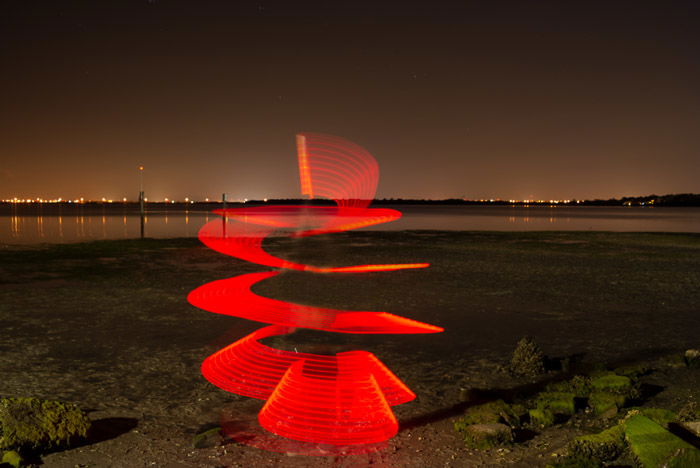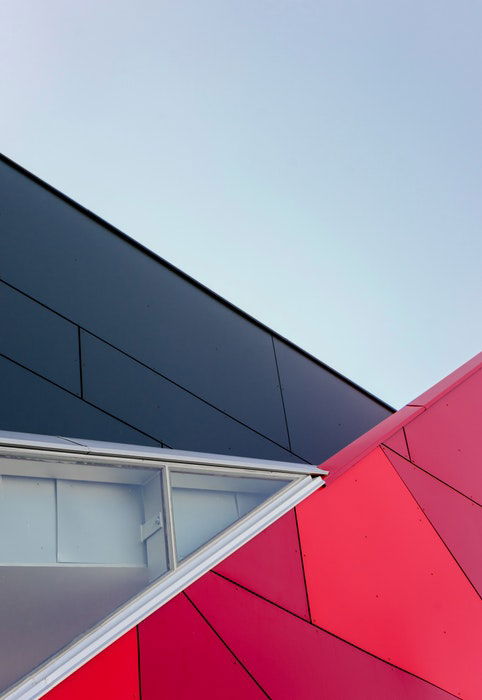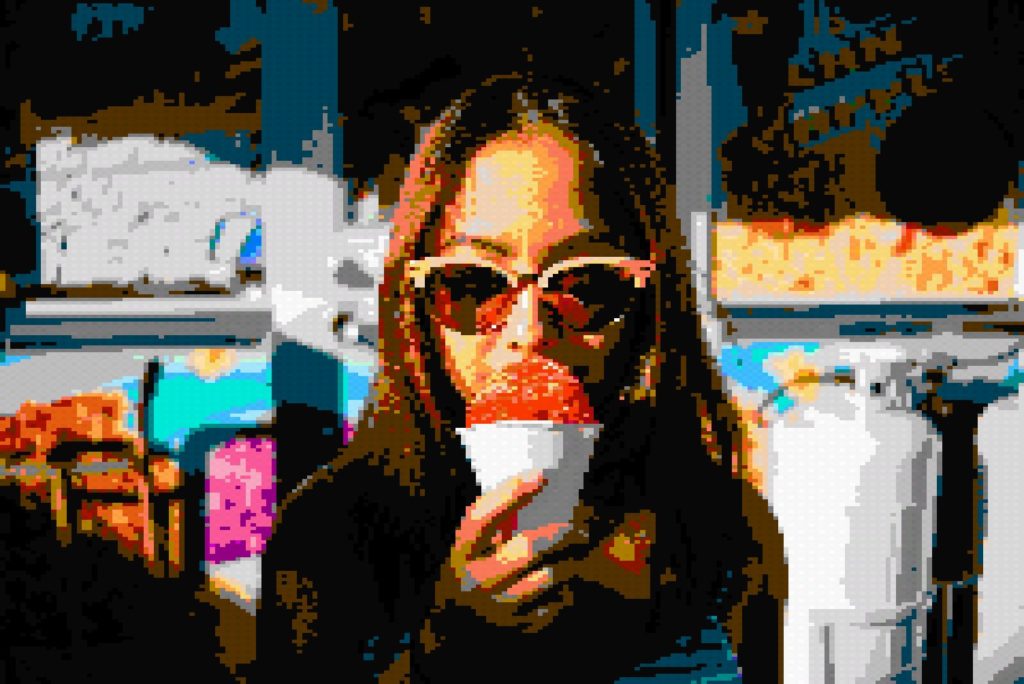Abstract photography is challenging to define. It is taking a subject and forcing the viewer to look at it in a different way. This may cause the subject to lose its original meaning or purpose.
The subject could lose all literal meaning and be reduced to only shape, light, texture or color.
Photographed items could be objects we use in our daily life. They could also be created entirely for the purpose of art.
We’ve created a complete guide to learn the tricks and insights of abstract images.
What Is Abstract Photography?
Abstract photography is a very wide field of image capturing. Any subject can become abstract depending on the way it’s photographed.
Abstraction not only an undefined artwork. It a visual language relying on the composition of shapes, colors, forms and lines with an independent attitude from any previous visual reference.
It takes creative imagination and concept to be able to capture subjects in an abstract way. You are only limited by your vision and ideas.
Changing your usual perspective of the subject helps to create abstract images.
Shooting from up-down could allow you to focus on its shape and form. This changes the subjects’ meaning and purpose.
You could even create something from scratch. Photographing an item relying on your off-camera creativity.
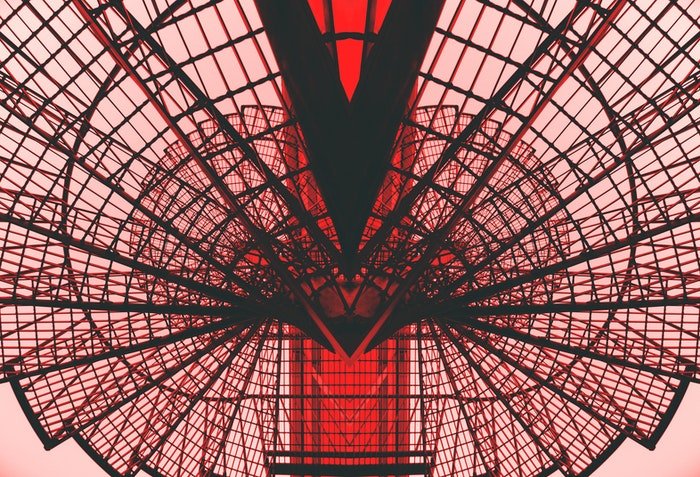
Other images, such as multiple exposures and ICM (Intentional Camera Movement) need the cameras’ help.
The best part of this area of photography is the lack of guidelines. There are no rules about composition or framing.
It all comes down to you, your view and what you find interesting or beautiful.
What you will discover from practising this field is the philosophy of subtraction. More often than not, what you leave out of the image is as important as what you put in.
Mastering the freedom of composition is the key to any abstraction.
Three photographers utilized and developed this field of photography. Man Ray and László Moholy-Nagy started the trend, but Alfred Stieglitz made it popular.
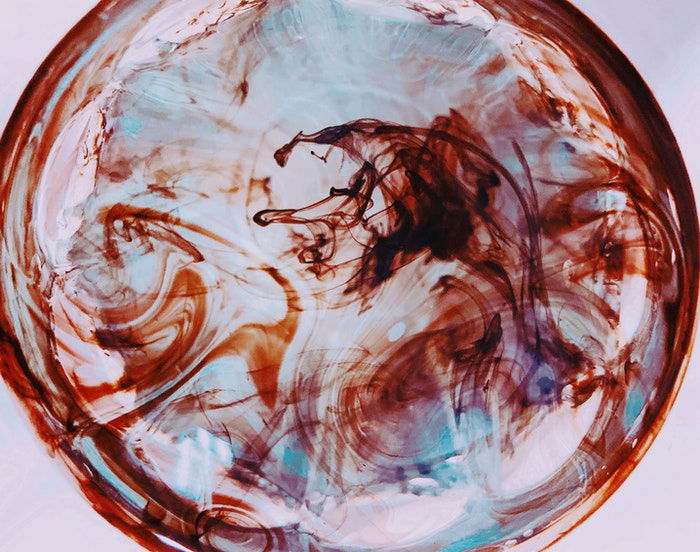
Abstract Vs. Fine Art Photography
Abstract photography is the view of an object where the entire shape is hidden from view.
Fine art photography overlaps the same notion. Yet, fine art focuses on a conceptual look at a subject and its surroundings.
Fine art photography has the ability to work across many photographic themes. The photographer and their vision are more important than the photographed subject.
Abstraction is a style in image-making. Fine art photography is a genre or a method of working on an artwork.
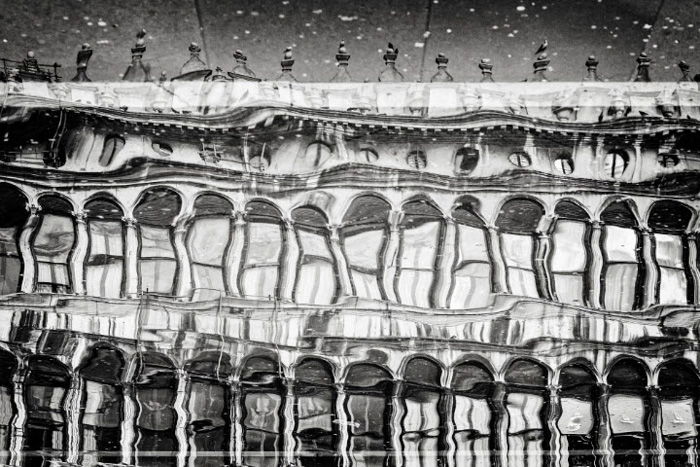
10 Abstract Photography Ideas for When You’re Stuck
Having a huge world in front of you with infinite possibilities can be as restricting as having none. Where do you start?
This all depends on what style you are interested in.
Abstract photography comes from looking at the details of subjects, not the whole. Get close to your subjects to see that it looks like close up.
Textures and patterns are reoccurring themes in this area of photography. So, see what the subject/object can offer.
From research, you will see that a suggestion of an object is much more powerful than seeing all it. It helps to create interest and excitement.
Read our article about ten abstract photography ideas to help you find new concepts.
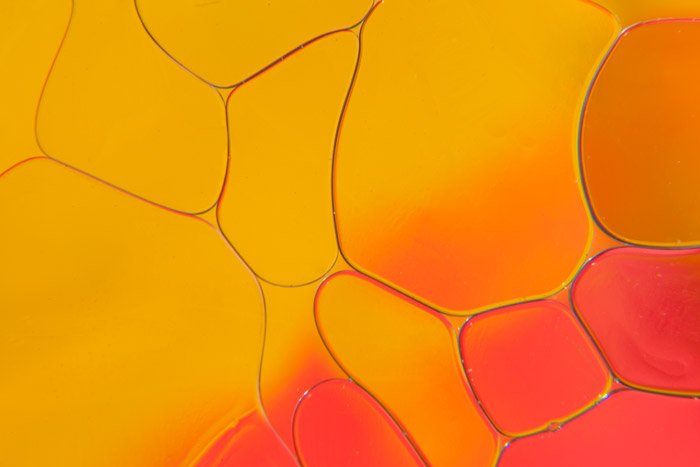
25 Inspiring Examples of Abstract Photography
Here is a selection of abstract photography images for your viewing pleasure.
Feel free to peruse these for inspiration. It will give you a good idea of what other photographers are creating.
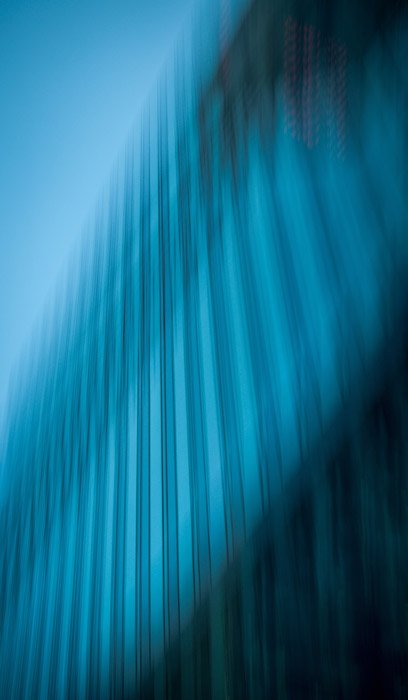
What Makes Good Abstract Photography? 6 Great Tips
Abstract is in the eye of the beholder. As a photographer, you only have to capture what you see. Even if others can’t see it.
What you photograph is up to you. Abstraction means relieving the scene of representational qualities.
You can do this with any subject, as long as you look past the usual shapes and forms.
Our tips will set you on the right path.
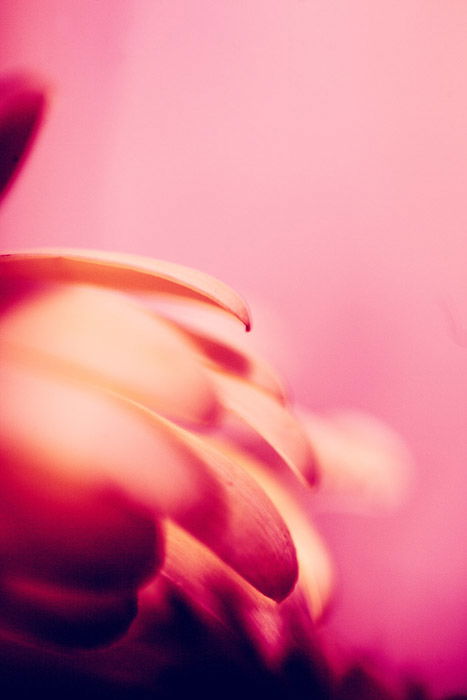
Smartphone Abstract Photography
If it has a camera, you can photograph with it. At least when it comes to abstract photography.
You might find that lower-priced options for cameras and mobile phones can help to add an abstract quality to your images.
Abstract Photography With Your Smartphone: Easy Tips
Having a smartphone is great as it is lightweight, portable and accessible. You can use it to get close to objects without having to worry about expensive lenses.
A smartphone is a tool that lets you focus on representing your concept in an easy way. Use your smartphone to look for shapes, patterns, and textures in your images.
You don’t even have to worry about picture quality and details when capturing textures and patterns with a smartphone. The pictures will not have as many components so you can not decide whether it was taken with a phone or a digital camera.
Read our tips to learn easy ways to create abstract photos with your smartphone.
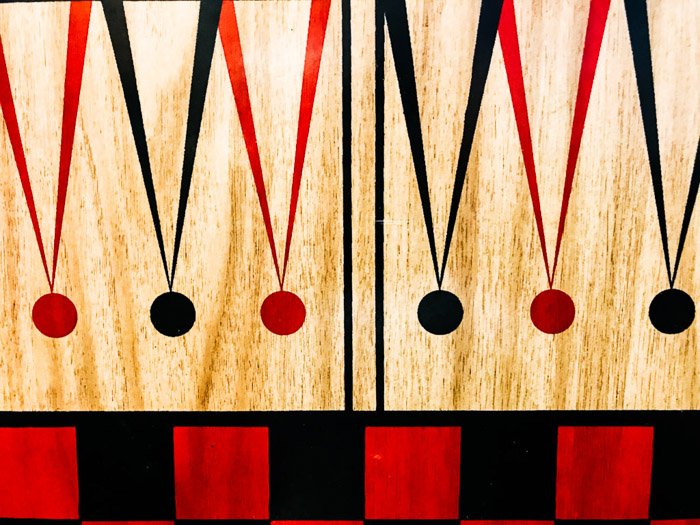
Technical Abstract Photography
Technical abstract photography looks at how you can choose tools and accessories alongside your camera to capture abstract images.
We also talk about slow shutter speed and the way it can add creativity to you abstract photographs.
Get Creative With 5 Abstract Macro Photography Ideas
There is no easier way to capture an abstract image than using a macro lens. These lenses allow you to get very close to a subject. This helps to single out abstraction from the whole subject.
A macro lens is a specialist lens. They can be further extended with the use of extension tubes and the crop factor from a cropped sensor.
Read our five abstract macro photography ideas here.
Multiple and Double Exposures
Multiple exposures are created during post-processing. As this article suggests, this is also possible within the camera itself.
The Canon EOS 5D Mark IV has an option named “Additive”. This allows you to photograph many images at shorter shutter speeds.
The camera processes the images together, giving you a multiple-exposed image.
Read our article for more information.
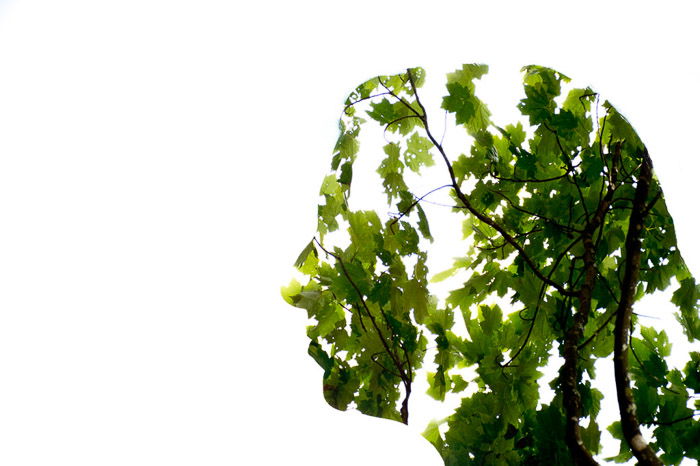
How To Get Creative Photos Using a Slow Shutter Speed
You can use slow shutter speed in many ways that add interest to your abstract photos. Think about motion blur, panning and long exposures that can all enhance your abstract photos.
Showing movement gives an extra level of creativity in your images. It allows simple objects to become something different and special.
Read this guide to learn more about getting creative photos by using slow shutter speed.
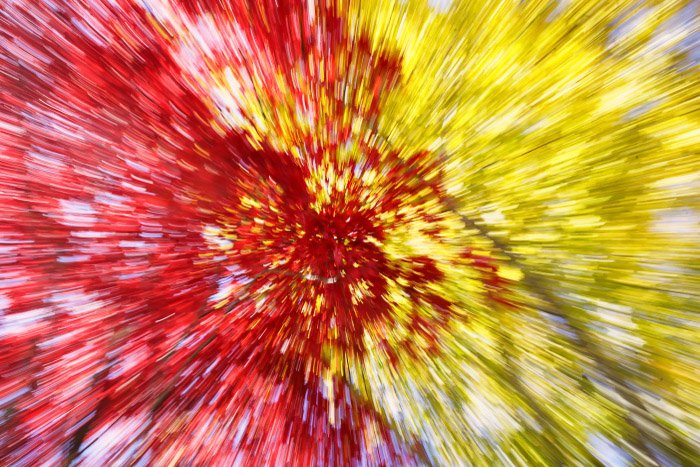
Subjects for Abstract Photography
There is no limit to what you can photograph. Anything and everything is photographable, it only comes down to your creativity and vision.
Here is a list of a few genres where you might find inspiration and try abstract photography for yourself.
How to Take Awesome Abstract Photos of Nature
Nature is one area where abstract photography can flourish. The best thing is that nature photography is never too far away and it gets you out, into the fresh air.
The outside world is full of interesting shapes and textures. It is also a place full of beautiful colors that change all year round.
In this area, you can use water for reflections. When it freezes over in winter, it will add interesting texture.
There are many more ideas about abstract nature photos in this article.
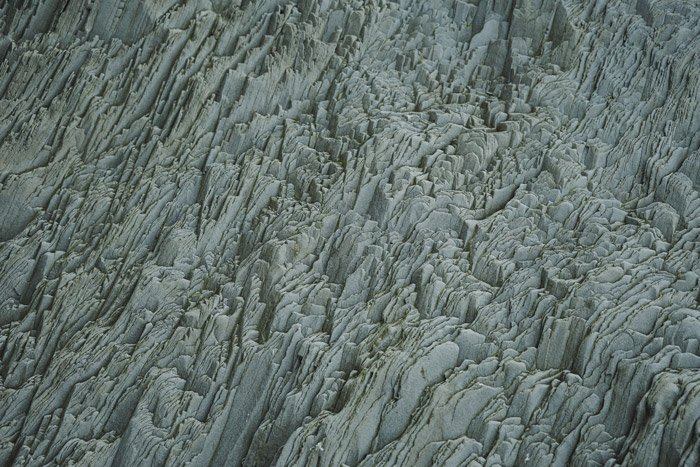
How To Take Beautiful Abstract Photos of the Body
The body is an object that has many interesting shapes and curves. These can seem abstract when you look at specific areas instead of the whole.
By zooming in on parts of the body, you take away the literal sense. As the body is something we see often, putting it in a different light creates interest.
The project called Distortion by André Kertész is an excellent example of this genre.
Learn more here about taking beautiful abstract photos of the body.
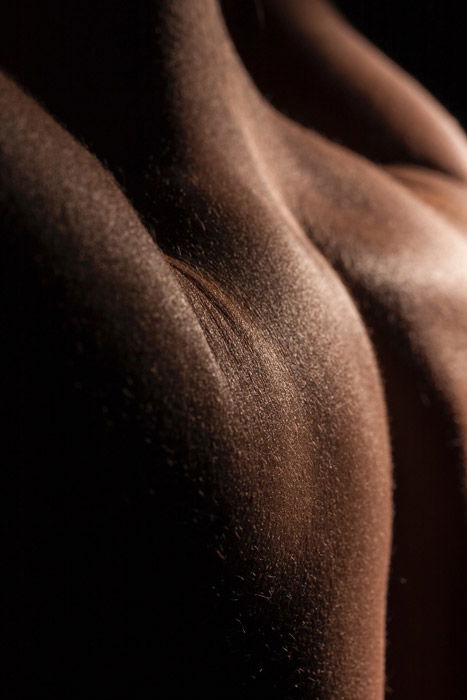
How to do Steel Wool Photography
Burning steel wool during a long exposure has become very popular in recent years. It is especially interesting at night when the burning sparks can be seen much better.
This is a great way to make the viewers question the scene. The longer the viewer looks at the picture, the more interesting the photo becomes.
This technique is a great way to show the landscape at night time. It adds light to the scene, and the sparks also bounce off the floor and setting.
Read this detailed article to learn how to do steel wool photography.
11 Great Tips for Abstract Landscape Photography
Landscapes are interesting subjects to look at with abstraction. There are many areas you can look at for inspiration due to the colors, forms, and textures.
One specific area is water. It has the ability to act as a mirror of the surrounding environment. These images reflect the scene and show it with added texture.
A way to capture water in this state is to photograph the reflection and flip the image. This shows the scene as being normal yet abstract due to the impressionist effect.
The use of different creative lens filters such ND filters can also end in an abstract effect.
Read our tips for creating stunning abstract landscape photography.
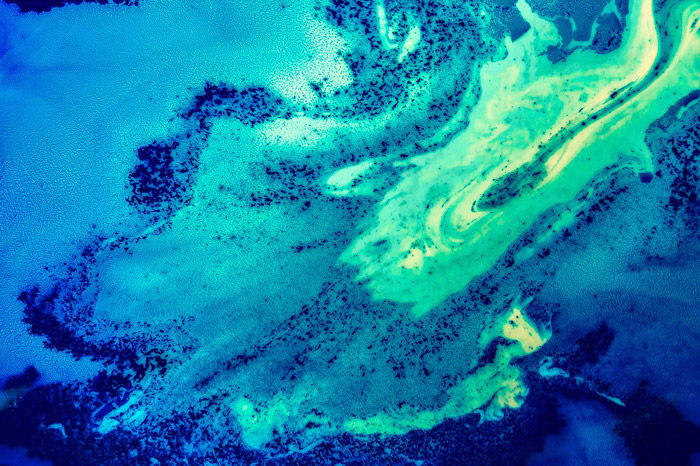
How To Take Awesome Abstract Photos Using Paper
Using something as simple as paper can be interesting, depending on how it is photographed.
Paper can be bent and warped due to its playability. It also comes in many colors and can hold texture or print.
By bending pieces of paper, you create an interesting, abstract form and shape.
Weights, paper clips, and sellotape are tools that will help you organize these into playful shapes.
You can even play with light to make the paper less recognizable with creating shadows and depth in the image.
Check out this article to learn more about the technique.
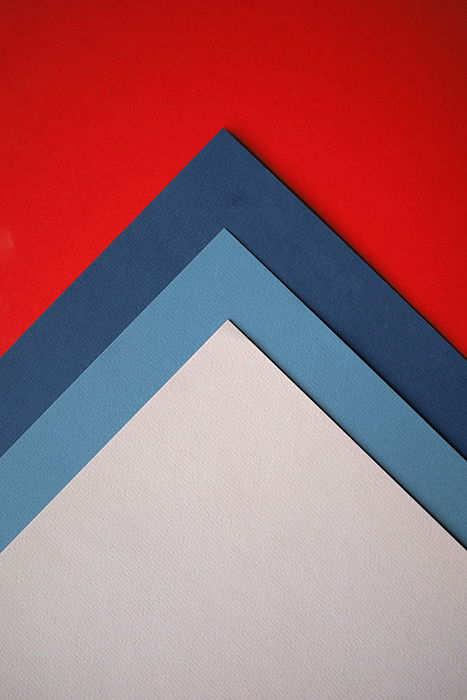
Using Shadows in Abstract Photography: 5 Tips
Showing a suggestion instead of the real subject will help to add interest and create an abstract image. One good example of hinting towards a subject is by using shadows.
Shadows are interesting to use as they elongate to the position of the sun. They also become warped and disjointed when blanketing the scene.
For abstract photography, shadows show you what a subject is doing without showing the subject themselves. They also give you a contrast between light and dark.
Shadows can also contribute to deforming an object into a surreal shape.
Learn more about using shadows in abstract photography.
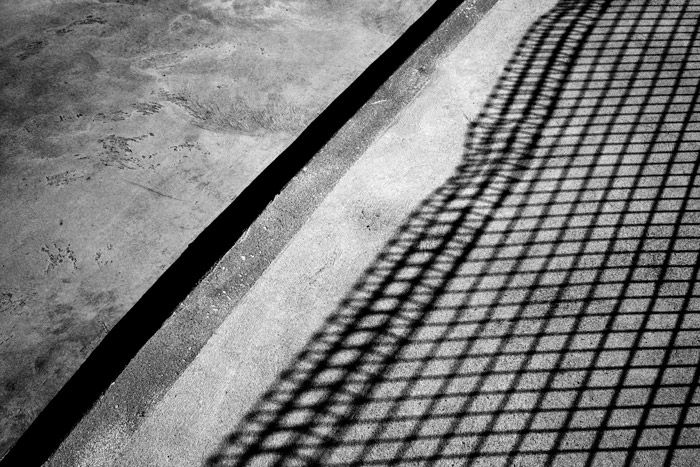
How to Create Amazing Abstract Photography with Oil and Water
Oil and water do not play well with each other. They don’t mix, which is the exact reason why we find them a good subject for abstract photography.
Here, you create abstraction through the conflict between these two materials.
Both are available and inexpensive, which makes for interesting and cheap experimentation.
Photographing two such materials could also benefit from interesting backgrounds.
Magazine covers or anything with strong colors works well as a background. They will create a repetitive design in the oil bubbles. You can even use paint as a background for a more abstract picture.
Read our tutorial on how to create amazing abstract photography with oil and water.
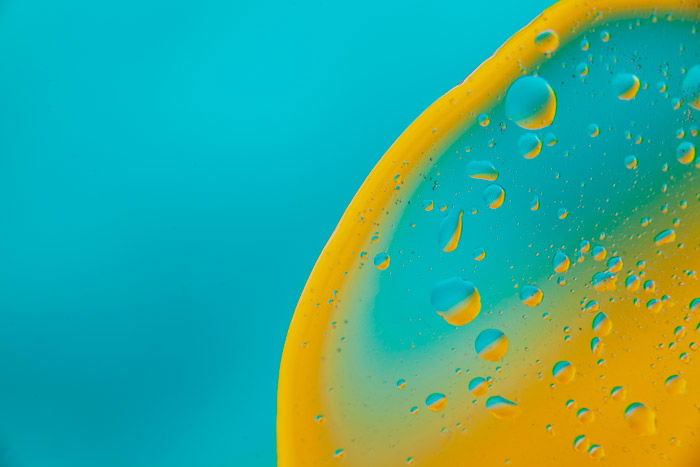
How To Use Photoelasticity to Add Abstract Rainbow Effects to Photos
Photoelasticity is one of the most creative ideas you can use in abstract photography.
The idea is to capture transparent plastic items with a polarising filter, which shows some very interesting colors and textures.
Apart from the filter and plastic, you’ll need a light source that emits polarised light. A laptop screen is a perfect example.
Read here for how to use this for your abstract photography.
How to Photograph Textures
Textures are one of the main elements you can use while composing your photo. There are hundreds and thousands of pictures across stock image websites that offer them.
These images can be used in many ways. Placed alongside other pictures, they can be used to create double or multiple exposure photographs. They also play a part in design too.
To capture these textures, you’ll need a little help. You find it in our article here.
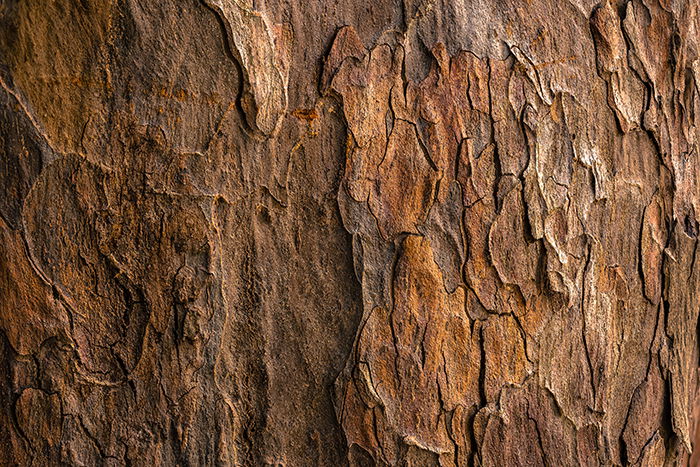
How To Capture Compelling Textures In Your Black and White Photos
Textures are even better in black and white. They help you take exciting photographs.
Unlike color images, black and white rely on other elements. Texture, contrast and shape/form are all important areas to consider.
Read our article here on how to capture these textures in the best possible way.
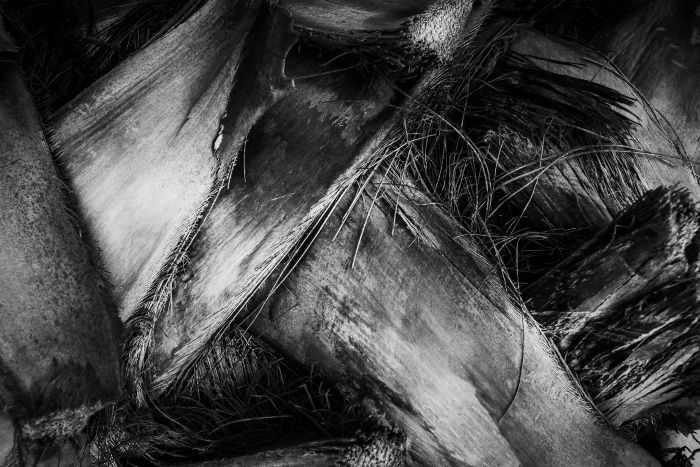
Try These 10 Cool Geometric Photography Ideas
Geometric shapes are found everywhere. In the buildings, we live in, in the streets we use to get to work. Even the transport we use has geometric shapes.
All you need to do is keep your eyes open. These shapes and forms can help create some very interesting abstract photography scenes.
Have a look at our ideas here, and come up with your own. There are no limitations.
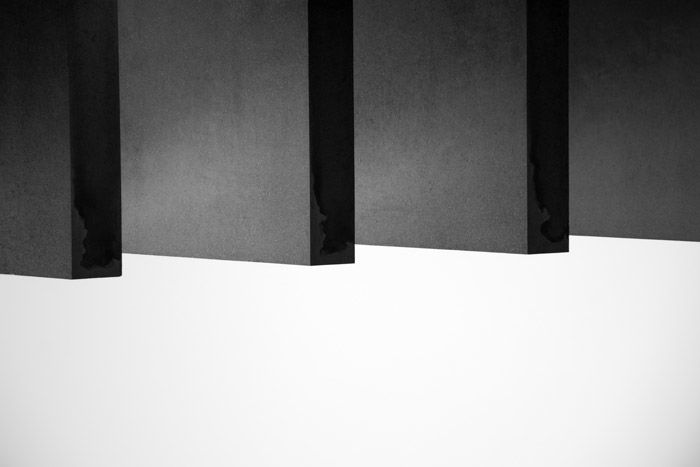
How to Take Abstract Flower Photography (with Stunning Examples!)
Flowers can make some great subjects, especially with abstract photography. They harness colors, patterns, textures, and gradients that all steal the viewer’s attention.
By getting close enough, you are free to create landscapes from the flora you have access to. There are many perspectives you can capture them in, making them perfect subjects.
You can take beautiful macro photography of flowers and turn them into abstract art. Read more here.
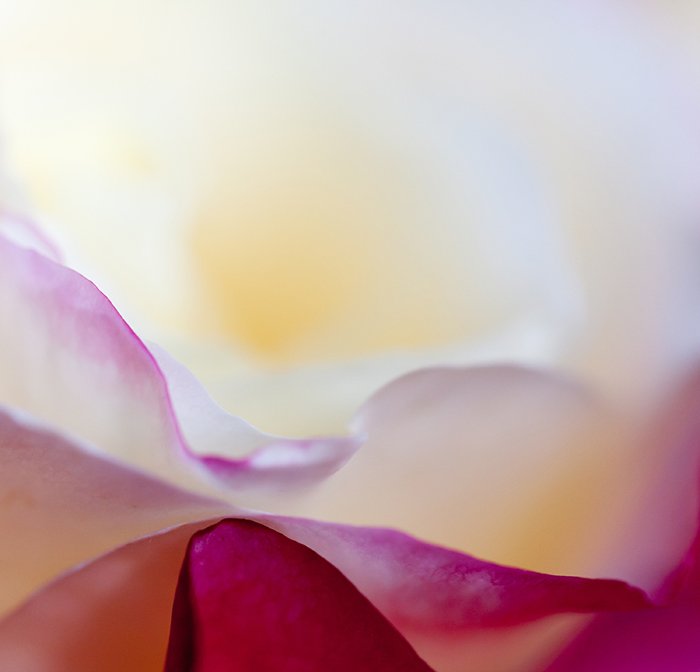
Movement in Abstract Photography
ICM (Intentional Camera Movement) is a large area of abstract photography. Due to DSLRs being very affordable, many photographers are free to experiment.
Moving the camera while capturing an image turns the scene into something unimaginable. It strips the image of all meaning and allows the photographer to look at colors and even texture.
This style needs a relatively long exposure and can be used on or off the tripod.
Panning
Abstract photography tries to concentrate on lines, shapes, designs, color, and texture. These attributes are very similar to abstract painting.
Panning is the action of moving your camera horizontally, either left or right.
In filming or panoramic photography, this allows you to see more of the scene while keeping the horizon level.
By releasing the shutter and moving the camera left or right, you can capture some interesting results.
Your shutter speed needs to be 1/20 of a second or less to capture the movement.
Read our detailed article about panning and how you can use it.
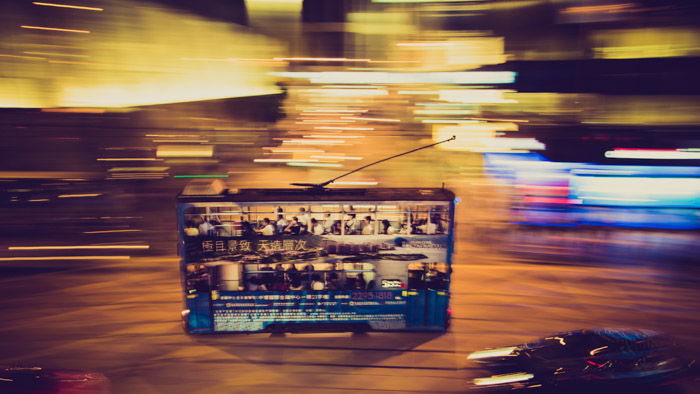
How to Take Creative Zoom Burst Photos
Zooming into a subject allows you to crop a scene tighter by cutting out unwanted surroundings. This works best if you are standing in the same place, only changing the focal length of your lens.
If you zoom into a subject while the shutter is open, you can create something very interesting. This technique blurs the surrounding area, as you focus on the subject. To achieve this, you need to use long exposure photography.
The subject in the middle tends to have the least amount of blur, whereas the edges of the frame will have the most.
It becomes the focus, as the blurred lines lead straight to the middle of the image.
Check out this article to learn how to take creative zoom burst photos.
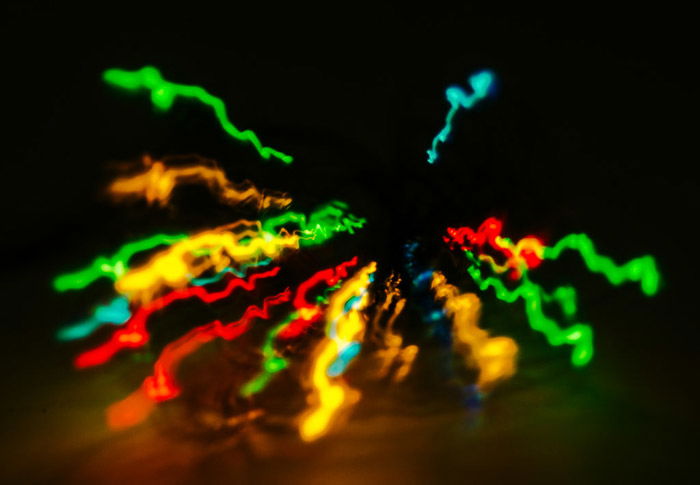
Tips for Turning Blurry Pictures Into Art with Motion Blur Photography
Showing movement in a still image helps to create something a little more relatable to the viewers.
As photographers, we are not confined to only showing the world as frozen slices of time. Creating blur on purpose adds that urgency to the photo and gives it speed.
Daily life is busy and fast, and using this technique shows this side of life on the street.
Here are a few techniques, allowing you to be as creative as possible.
Even holding the camera during a long exposure can create enough shake in the photo, giving the subject a little more life.
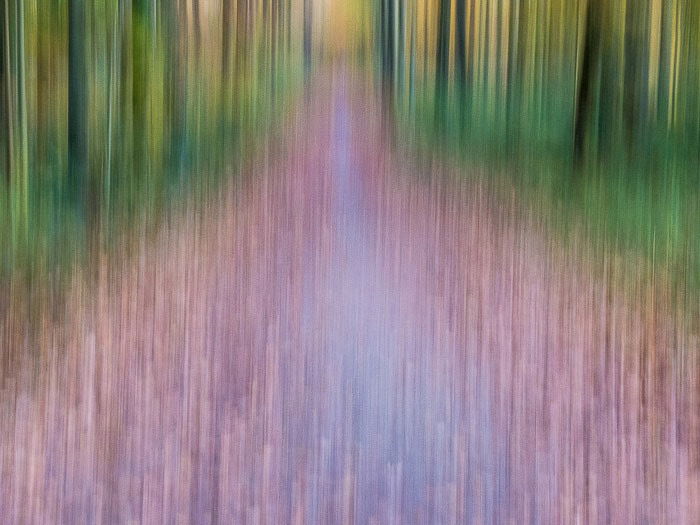
Composition for Abstract Photography
Composing your abstract photography is no different to composing any other photo.
How we compose our subjects adds interest and helps the viewer see the important area of the image.
For abstract photography, due to the experimental concept, basic rules don’t apply. The rule of thirds isn’t as important as patterns and filling the frame takes precedence.
Or, even better, creating a composition that you’ve never seen before.
How to Make The Most of Line, Shape, and Form in Photography Composition
Lines are a great addition to any abstract photo. The lines draw the viewer’s eyes into (and out) of the frame. They can also lead their eyes to the important subject in the scene.
These lines can also repeat in the photo, adding extra interest by creating a pattern and texture.
They can even add depth, depending on what the lines are showing us, and how big they are.
Curves can add a dynamic background to your image. Eyes follow and flow along with them, keeping the viewers entertained as they try to make sense of the picture.
Read more here about using lines, shapes and forms in photography composition.
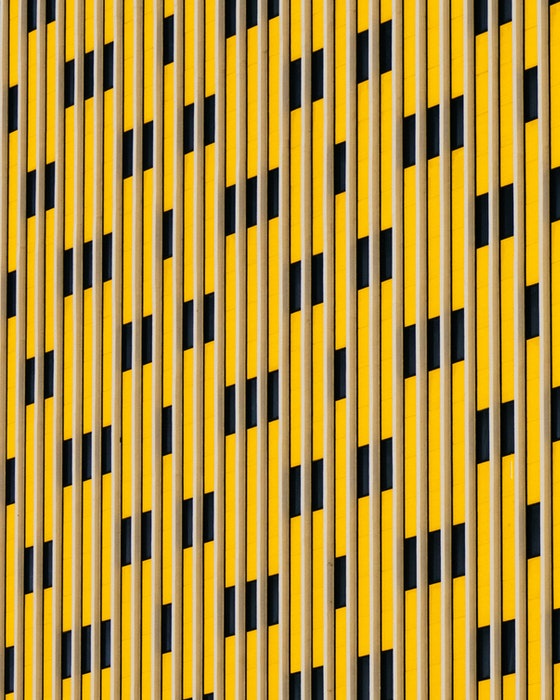
Patterns
Patterns add a lot of interest to your abstract photography. Our entire visual life is full of patterns and textures that help to create a mood or an atmosphere.
Scratched paint gives us an impression of age and impressions left by people.
As this medium is free of rules, you are free to experiment. We are visually drawn to patterns, as they present us with a graphic element.
They look appealing and interesting. Using patterns as a compositional technique is a great way to show a small area of the ‘real’ subject.
It also works well with macro lenses to add more interest and suspense to your viewers.
Learn here about using patterns in your abstract images.
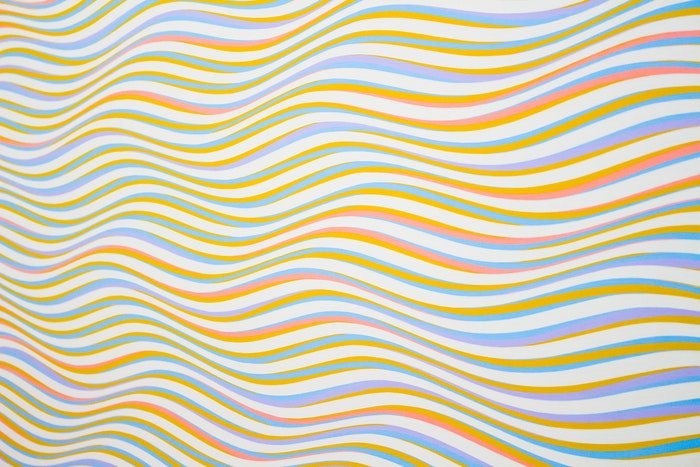
Using Tools for Abstract Photography
How to Make Beautiful & Unique Photography With Refracted Light
Refractory imagery works in the same way as a kaleidoscope. By holding up the tube to the light, the tiny objects with the help of mirrors created wonderful patterns and shapes.
For this technique, you will need a light source, a camera body (no lens is needed), a tripod and an object. Colored gels are a great addition to help add color into the photo.
The camera body should be pointing up, with the object above it. The light source hits the object at a 90° angle, which refracts and hits the camera sensor for capturing.
Read this article to learn more about the refracted light method.
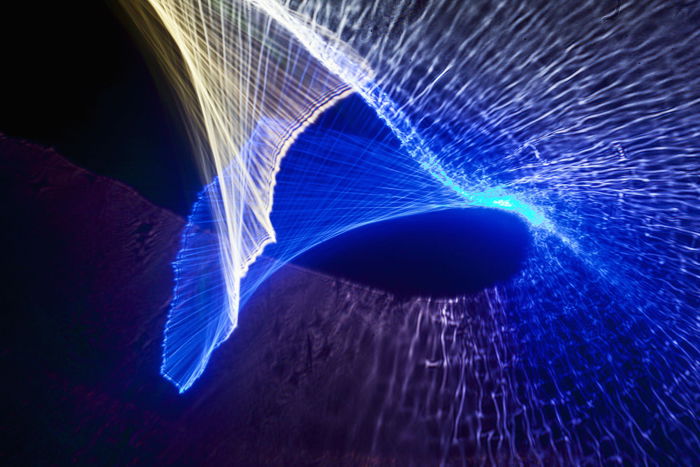
How To Shoot Spiral Light Painting Photography
Spiral light painting adds colorful and futuristic feelings to your abstract photo. It looks very cool, but many photographers are scared of trying the technique.
In reality, it is an easy process, and you don’t even need fancy equipment for it.
Read this tutorial to learn how to shoot spiral light painting photography.
Perspective in Abstract Photography
Your perspective plays a large part in abstract photography. It is the way that you shoot your subject, from what angle and height. This is the Point of View or PoV.
By changing your perspective of everyday settings or subjects, you can create something very interesting.
This is due to it being a different view of a subject. A view they don’t see often. Use this to your advantage for interesting ideas.
Understanding Perspective in Photography
The perspective of your photo comes down to your point of view and how the subjects are arranged.
By changing the height at which you photograph, you change the size, shape, and feel of a subject or image. It can end up in total abstraction.
Looking up at an object can make it seem bigger and therefore stronger, and more powerful. Looking down takes away that power as the subject looks smaller.
The perspective gives the still, 2D image a sense of depth. By changing the way you photograph a scene, you can turn it into something confusing for the viewer.
This means they spend more time encapsulated by your photograph. Read more about perspective in photography.
7 Tips for Creating Abstract Aerial Landscape Photography
Aerial photography is a great way to show off landscapes and settings.
As humans, we are not used to seeing the world underneath us. We rarely have a birds-eye view of the world.
This view adds interest to images as we are not used to this perspective. From looking down on a subject, its meaning changes.
Perspective, as we have seen above, can help to add depth to an image. Aerial photography strips the image of its normal depth, which creates a flat version of a 3d world.
Read our tips for creating abstract aerial landscape photography.
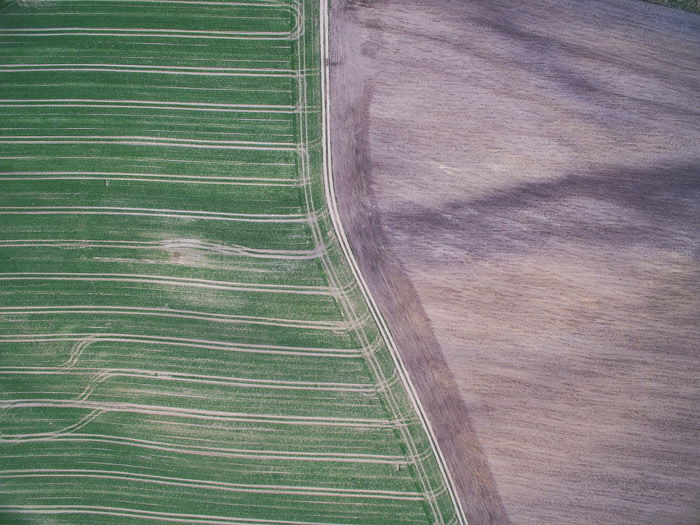
Post-Production Abstract Photography
How to Create Cool Glitch Art Photos
A glitch is the result of a digital system malfunctioning. They cross images, videos, sound files and all types of software or hardware.
A digital photographic image transferred incorrectly can give you a glitch. This happens due to the file missing information.
Created digitally and with intent, these add an interesting, artistic layer to your image.
Read our guide and learn how to create a cool abstract photo with glitch art.
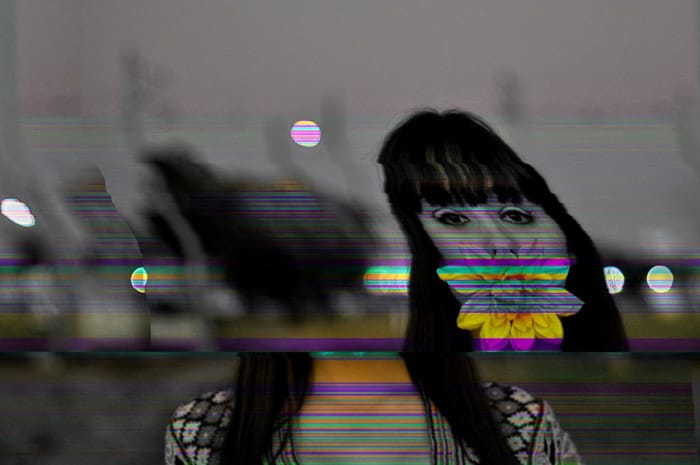
How To Create Cool Abstract Portraits in Photoshop
In this article, we show you how to create an abstract portrait. The program we use to make this is Adobe Lightroom, which is a great tool for all processing needs.
Techniques you will learn here will expand your editing knowledge. It will also help you to understand the possibilities that post-processing software can offer.
The images that you use do not have to be of high-interest value. Effects and digital manipulation will add interest.
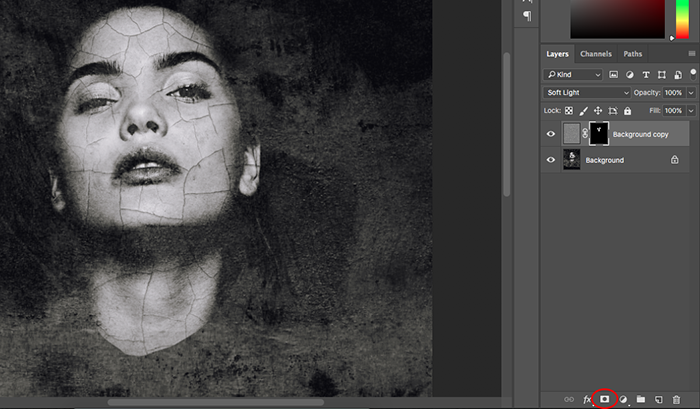
Conclusion
Abstract photography is a genre that allows great creative freedom. You don’ have to worry about sticking to rules and following strict technical guidelines.
In fact, the more rules you break, the better your abstract art gets! Use our guide to start but feel free to experiment with your unique ideas.
